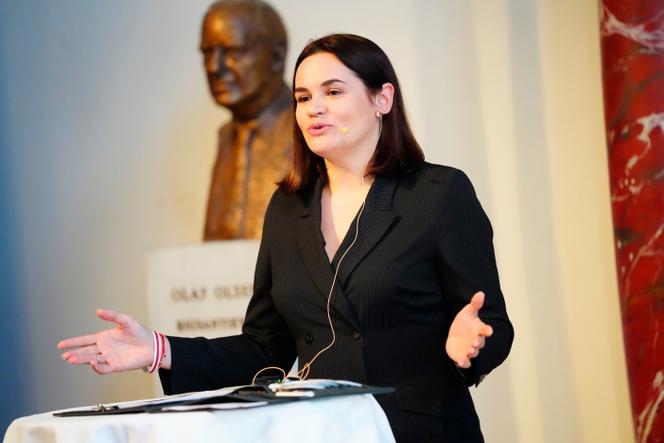


Nearly four years after their unsuccessful protest movement, Belarusian dissidents in exile have been looking for a fresh start. Elections will be held for the first time, from May 25 to 27, for positions on the Coordination Council, an alternative assembly to the Belarusian Parliament, which is subservient to dictator Alexander Lukashenko. Candidates campaigned in Warsaw, Poland, on Sunday, May 19.
The date for the election, which will be held online to enable the entire diaspora to participate, is no coincidence: It comes three months after the most recent cycle of elections in the Belarusian Parliament, a charade to which international observers from the Organization for Security and Cooperation in Europe were not invited. For the vote organized by the dissident community, any Belarusian citizen aged 18 and over, in possession of a passport, will be able to choose, via a secure application, one of the 12 candidates running for the Coordination Council.
This body was established by Sviatlana Tsikhanouskaya in the aftermath of the fraudulent presidential election of August 2020, in which the opposition candidate ran in place of her imprisoned husband. Originally, it was intended to ensure a transition to democratic rule. This was before a wave of repression descended on the tens of thousands of Belarusians who had taken to the streets to contest the electoral farce. Since then, protesters have had to choose − when they could − between exile, prison or silence.
Russia's invasion of Ukraine, which Lukashenko has aided and abetted by making Belarusian territory available to Russian armed forces, was another blow to Belarusian democrats. A democratic future for Belarus, economically dependent on Russia and ostracized by the international community, has also been at stake on the Ukrainian front.
"Not only are we dealing with a hardened authoritarian regime in Belarus, but the country's involvement in the war in Ukraine poses a real threat to its independence," said Andrei Yahorau, current speaker of the Coordination Council and election candidate with his own party. "The fact is that international sanctions, understandable as they may be, have isolated Belarus and made it even more dependent on Russia," said the 40-something.
Lukashenko's continued rule, combined with the war in Ukraine, has prompted the dissident movement to reorganize. Ever since the summer of 2022, Tsikhanouskaya, a candidate in the 2020 presidential election who has been taking refuge in Vilnius, Lithuania, has been at the head of the United Transitional Cabinet. This body has become a kind of "executive branch" of a free Belarus and is regarded as such by many foreign heads of government. The Coordination Council, reformed in 2022, has become its legislative "counterpart."
You have 53.25% of this article left to read. The rest is for subscribers only.
